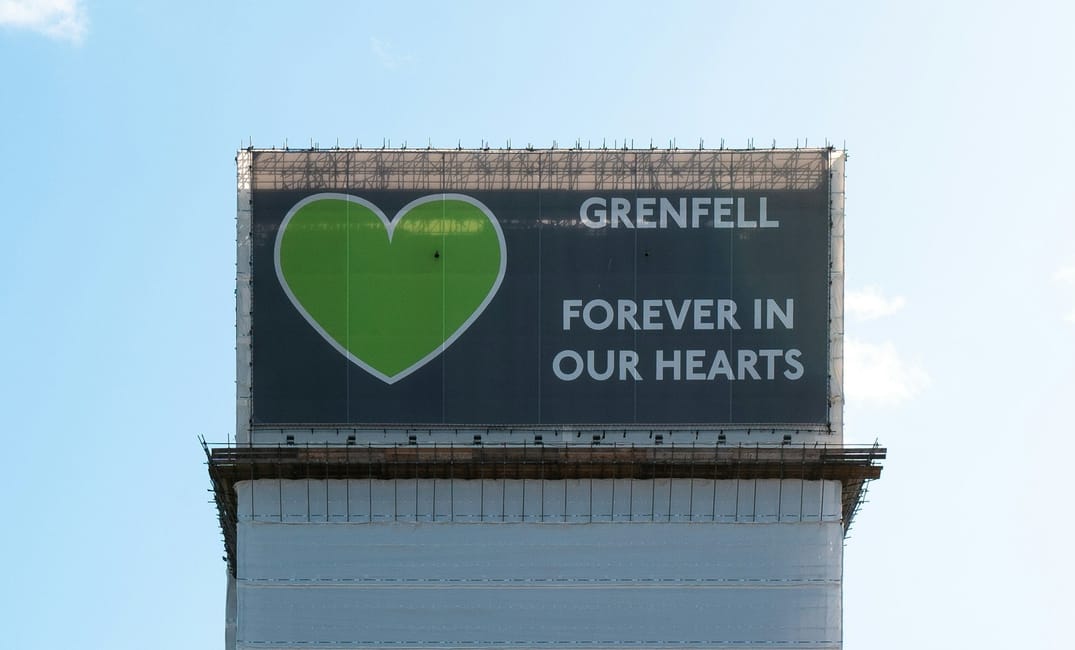Jacob F. Farr
Naked Politics Blogger
A year has passed since 72 members of the lower classes of Kensington and Chelsea council were massacred in their homes by corporate incompetence. This was murder, there is no way around it, regardless of the fact that the police investigation is pursuing possible corporate manslaughter charges, these people were murdered by an institutional class divide.
The question that now stays so prominent in the communities mind is what is being done to bring justice?
The Police Investigation
Police have stated that the London fire brigade and its senior officers will now be investigated for their ‘stay put’ policy that was implemented on the night of the blaze. An incredibly difficult moment was where the general secretary of the fire brigade union released a statement trying to explain that the department was just following protocol. A plan of action was put in place for when circumstances like this arose, however, the plan was not fit for the actual circumstances that they found themselves in that night. Firefighters and the community connected in the aftermath on several of the ‘silent marches’ and no doubt this will be a difficult investigation for all parties involved (https://www.huffingtonpost.
The Royal Borough of Kensington and Chelsea as well as the Kensington and Chelsea Tenant Management Organisation are being treated as suspects in relation to the charges of ‘corporate manslaughter’ (https://www.bbc.co.uk/news/
The Grenfell Public Inquiry
Public inquiries rarely come to a conclusion within a short time frame, particulalry as short a time as this community needs. Understandably they must be thorough but there shouldn’t be an attempt to drag Grenfell out as Hillsborough and other public tragedies have been in the past. It is thought that the inquiry will last well beyond 2020, being the largest ever British public inquiry, over 2,000 pieces of evidence have already been viewed in connection with the cause, spreading of the fire and evacuation protocol that occurred that night.
Companies involved in the refurbishment of Grenfell have been heavily criticised for not providing full statements in the aftermath to the inquiry and the government itself has been heavily criticised for not holding the inquiry closer to the site of the tragedy. The second part of the inquiry will begin later this year and focus on the build up to the refurbishment and why the building became such a fire hazard (https://www.theguardian.com/
Many survivors had accused the government of trying to sweep certain incompetencies under the carpet in the build up to the inquiry.
Re-housing the survivors
Theresa May famously panicked upon the immediate backlash that she suffered for her inhumane response to one of the worst disasters in modern British history by guaranteeing the survivors that they would be re-housed within three weeks of the tragedy.
Housing secretary, James Brokenshire, stated that the pace has been far too slow and has blamed the delays on repairing or adapting properties to be fit for the families. This is a direct contradiction to what the survivors claim. One man aptly saying that he does not want a penthouse or a mansion but simply a permanent home he can call his own. 82 out of the 203 households have been placed in permanent housing, with some families continuing to share hotel rooms for months on end with no end in sight. The disdain and excuses brought forth by the government and council is aimed at blaming the residents for being picky or needy.
A reminder of the abhorrent treatment of the survivors and the victim blaming that has been so consistent throughout.
Replacement of Flammable Cladding
Dame Judith Hackitt, chief reviewer in the government commission that sought to review the use of combustible cladding, deemed that combustible cladding need not be banned for use in the construction of buildings. Her argument being that we must look closer at the corner cutting regulation that exists and go further in order to stop this sort of thing from occuring again. Survivors of Grenfell have confronted Dame Hackitt and accused her of ignoring the pleas of the Royal Institute of British Architects, who called for all combustible cladding to be banned. Hackitt has been charged with the notion that she is protecting current building projects with this move
Over 300 buildings have been identified as containing combustible cladding with only 11 of the buildings having had their dangerous cladding rectified since the tragedy. A further 100 are currently under repair with the government offering £400m to councils in order to assist with the repair work. A measly amount considering that the final bill could be well over £1bn and the Conservative government has raided the coffers of local councils since they took power in 2010.
The council was warned about the loose fitting combustible cladding that helped spread the inferno of death by residents on several occasions but did nothing. A resident of Grenfell who had been interviewed as part of the BBC documentary on Grenfell earlier this week had several run ins with a council that never wanted to listen. As a regular blogger, the man challenged the council about several health and safety failings. Electrical surges were common, boilers were placed in dangerous positions and a school was built next to the block that would later act as a blocking mechanism for fire engines rushing to the scene.
All of the above contributed to the death toll on the 14th of June 2017 and all of the above was brought to the councils attention by several Grenfell residents before the massacre occurred. What must be upheld in the coming the days, months and years, is the community fight for answers and change.

